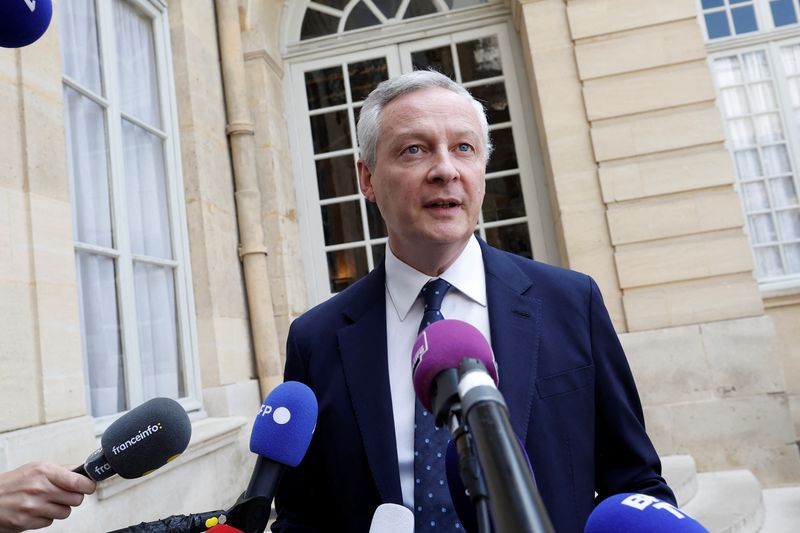French Finance Minister: energy and transport firms must do more to ease inflation pain
2022.06.29 10:30

French Minister for Economy, Finance, Industry and Digital Security Bruno Le Maire talks to journalists as he leaves after a working meeting with the French Prime Minister and members of the government at the Hotel Matignon in Paris, France, June 21, 2022
PARIS (Reuters) – French Finance Minister Bruno Le Maire said companies in the energy and transport sectors should do more to return a part of their profits to help customers cope with inflation.
“A small number of companies have during the crisis made profits in sectors such energy or transport…I want them to give me strong proposals so that they give back a part of their profits to the French people,” Le Maire told C News TV on Wednesday.
“This can take the form of rebate on fuel prices or proposals by transport firms like CMA-CGM. If they choose against not doing more, we will take our responsibilities,” he added.
On Monday, Le Maire called on energy giant TotalEnergies to do even more to help customers cope with high fuel prices by extending and increasing rebates. Energy prices have risen across the world after Russia’s invasion of Ukraine.
As fuel prices hit record highs this year, TotalEnergies had yielded to government pressure by offering a 10 euro cent rebate on prices at the petrol pump until the end of August, in addition to an 18 cent rebate from the state.
The French government is also due to present legislation containing various measures aimed at boosting consumers’ purchasing power in the face of the surge in inflation.
Le Maire added that France’s economic growth was “solid” despite a cut to the country’s economic outlook.
On Tuesday, France’s government cut its growth outlook sharply but kept its budget deficit forecast steady despite billions of extra spending on anti-inflation measures thanks to stronger than expected tax revenues.
The French finance ministry said growth was now expected to be 2.5% this year, down from a previous estimate of 4%, due to the impact from the Omicron COVID wave at the start of the year and Russia’s invasion of Ukraine.








